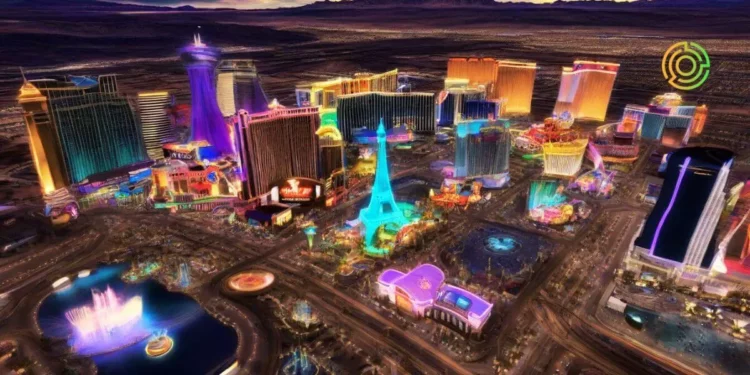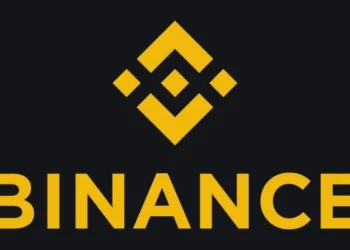With the potential to generate revenues close to USD 29 billion by 2026, the Metaverse is reshaping the way we entertain ourselves. This revolutionary digital reality is leaving an indelible mark on the entertainment industry, introducing immersive experiences beyond the ordinary. Major brands like Nike, BMW, and FIFA are venturing into this digital world, merging social interaction with creativity in virtual realms.
It’s no longer just about playing or attending events. Users can now create and share real-time content, redefining the way we connect and entertain ourselves.
The Metaverse: A Convergence of Work, Shopping, Communication, and Education
According to Matt Redman, the UK strategy leader at Valtech, the Metaverse resembles a network of platforms like Horizon Workrooms, The Sandbox, or Roblox, where work, shopping, communication, and education converge in a future driven by digital avatars and virtual and augmented reality technologies.
Gartner predicts that by 2026, 25% of people will spend at least one hour daily immersed in the Metaverse, performing everyday tasks such as working, shopping, studying, socializing, and entertaining themselves.
Entertainment Potential of the Metaverse
This grand prototype is already visible in events like the FIFA World Cup, hailed as the first Web 3.0 World Cup. Fans in the stadium could access real-time information about player performance through the FIFA+ app. Similarly, the NBA partners with Niantic to launch NBA All-World, merging video game environments with real-world maps to create virtual experiences around real basketball courts.
The Metaverse’s contribution to entertainment is undeniable. From virtual concerts to interactive conventions, this meeting space has broken down geographical barriers, allowing communities worldwide to interact and enjoy events in real-time. The Metaverse has introduced the concept of “phygital,” combining the physical and digital worlds, gaining relevance in Western entertainment communities.
The Metaverse Economy and Its Impact on the Industry
Beyond social and creative immersion, the Metaverse has opened doors to a new economy. Blockchain technology has played a crucial role in enabling the creation of virtual markets within this digital universe.
The entertainment industry has seized a significant opportunity in this emerging Metaverse economy. Brands like Disney have swiftly announced their foray into this space, paving the way for the creation of three-dimensional virtual universes where users can interact, work, and enjoy.
See also: Metaverse Made Simple – The Ultimate Guide to Understanding the Metaverse
The Metaverse and the World of Video Games
Among all industries embracing this technology, the gaming industry has been a significant catalyst. From pioneers like Second Life to the present, the gaming world has been a trailblazer in exploring this realm, not just to grow the economy but also to enhance entertainment.
Musical events, fashion, and real estate have found their place here, but video games are taking this technology to new heights. Decentralized games, where players actively influence decision-making, are gaining ground. Decentralization not only diminishes power from gaming companies but also empowers players to influence the rules, content, and economy.
Additionally, Augmented Reality (AR), Virtual Reality (VR), and Extended Reality (XR) are now key elements in metaverse game development. The quest for total immersion has led to improvements in visual effects, with these technologies gaining popularity.
Projected Growth of Metaverse Entertainment by 2026
By 2026, the projected Metaverse dedicated to entertainment is expected to reach USD 29 billion, according to a study by Technavio. This rapid growth phenomenon is radically transforming how we consume and experience entertainment.
This positive forecast is not coincidental. Several reasons support this extraordinary growth. The widespread adoption of the Metaverse by leading brands in various industries underscores the interest and significant investment in this new paradigm. From virtual music events to immersive experiences in online games, massive user participation is generating an exponential increase in revenues.
However, despite the promising and exciting future for the entertainment industry, this path towards digital transformation must proactively address ethical and security concerns to ensure widespread and sustainable adoption. With data privacy at stake and the Metaverse positioned as a new digital coexistence space, companies must balance innovation with legal responsibility to build a secure universe.
See also: Navigating the Metaverse: Unraveling the Complex Web of Digital Ownership and Rights
Conclusion
In conclusion, the Metaverse is not just a buzzword but a transformative force reshaping the entertainment industry. With its potential to generate substantial revenues and revolutionize the way we connect, work, and entertain ourselves, the Metaverse has become a focal point for major brands and industries. From immersive experiences to the creation of virtual economies, its impact is undeniable.
As we look ahead to 2026, the projected growth of the Metaverse dedicated to entertainment is staggering, reaching USD 29 billion. This growth is driven by the widespread adoption of the Metaverse by leading brands, resulting in a surge of user participation and revenue. However, the journey towards digital transformation must be approached proactively, addressing ethical and security concerns to ensure a safe and sustainable digital coexistence.
FAQs
1. What is the Metaverse?
The Metaverse refers to a collective virtual shared space that is created by the convergence of physical and virtual reality. It includes augmented reality (AR), virtual reality (VR), and extended reality (XR), allowing users to interact with digital environments and each other.
2. How is the Metaverse impacting the entertainment industry?
The Metaverse is revolutionizing the entertainment industry by introducing immersive experiences, virtual economies, and opportunities for social interaction. It has transcended traditional boundaries, enabling users to create, share, and participate in real-time content, from virtual concerts to interactive gaming experiences.
3. What role does the Metaverse play in the economy?
The Metaverse has opened doors to a new economy, driven in part by blockchain technology. Virtual markets within this digital universe allow users to interact, work, and enjoy, creating opportunities for brands and industries to explore and capitalize on this emerging economic landscape.
4. How are video games contributing to the Metaverse?
Video games have been a significant catalyst for the Metaverse, pioneering exploration and innovation in this digital realm. Decentralized games, where players actively influence decision-making, and the integration of AR, VR, and XR technologies are taking the Metaverse to new heights.
5. What is the projected growth of the Metaverse by 2026?
By 2026, the projected Metaverse dedicated to entertainment is expected to reach USD 29 billion, according to a study by Technavio. This growth is fueled by the widespread adoption of the Metaverse by leading brands, resulting in increased user participation and revenue.
6. What challenges does the Metaverse face in terms of ethics and security?
The path towards digital transformation in the Metaverse must address ethical and security concerns. With data privacy at stake and the Metaverse becoming a new digital coexistence space, companies must balance innovation with legal responsibility to ensure a secure and sustainable universe.
Follow us on our social networks and keep up to date with everything that happens in the Metaverse!
Twitter Linkedin Facebook Telegram Instagram Google News Amazon Store
Recent Posts
- Binance Blockchain Week 2025 returns to Dubai
- How to mine Bitcoin for Free on your Phone in 2025
- Coinstore hits 10 Million Users Milestone, Join Grand Celebration with $100,000 + Prize Pool
- Domus Crypto Launches LIA, an AI-Driven Assistant for Personalized Portfolio Management
- BitGo Launches Institutional Support for sBTC, Expanding Bitcoin DeFi Accessibility












































